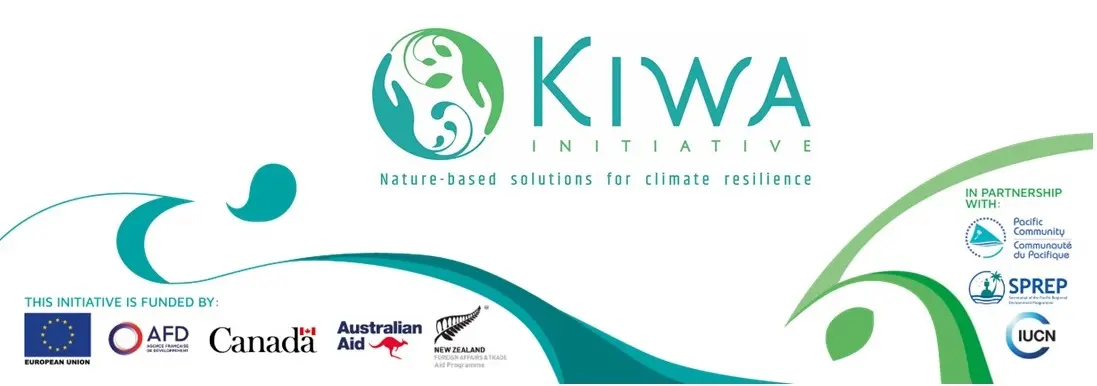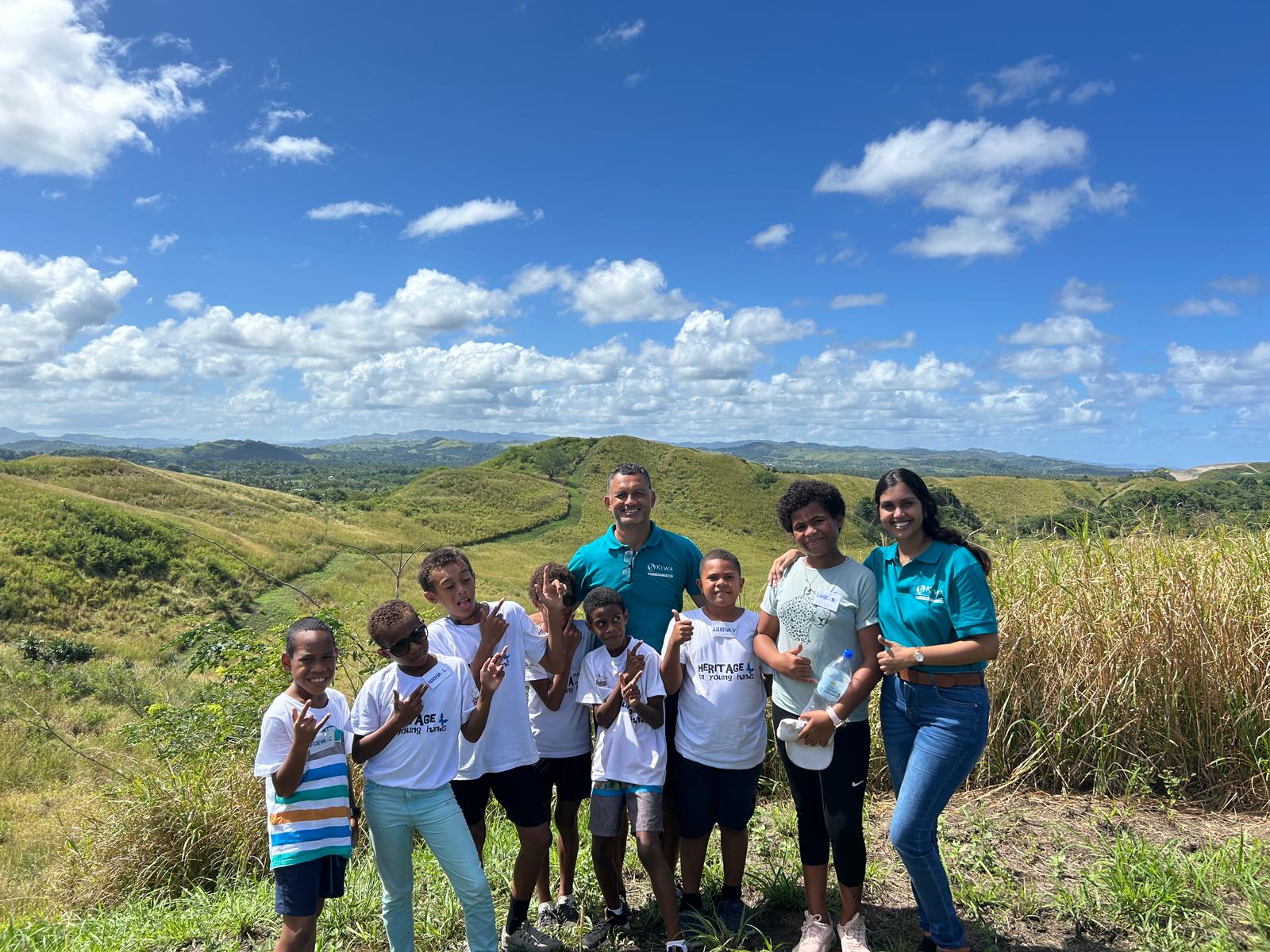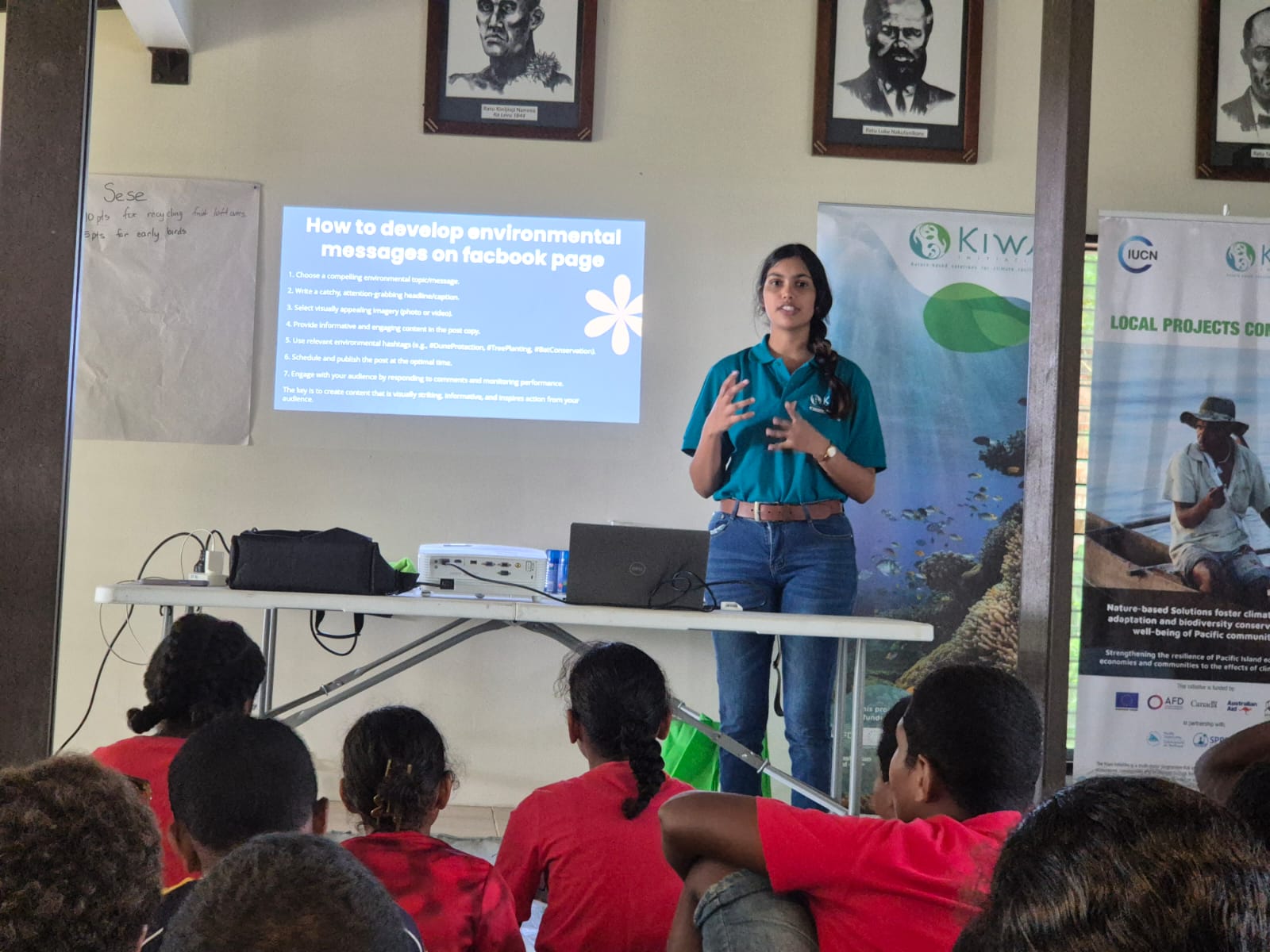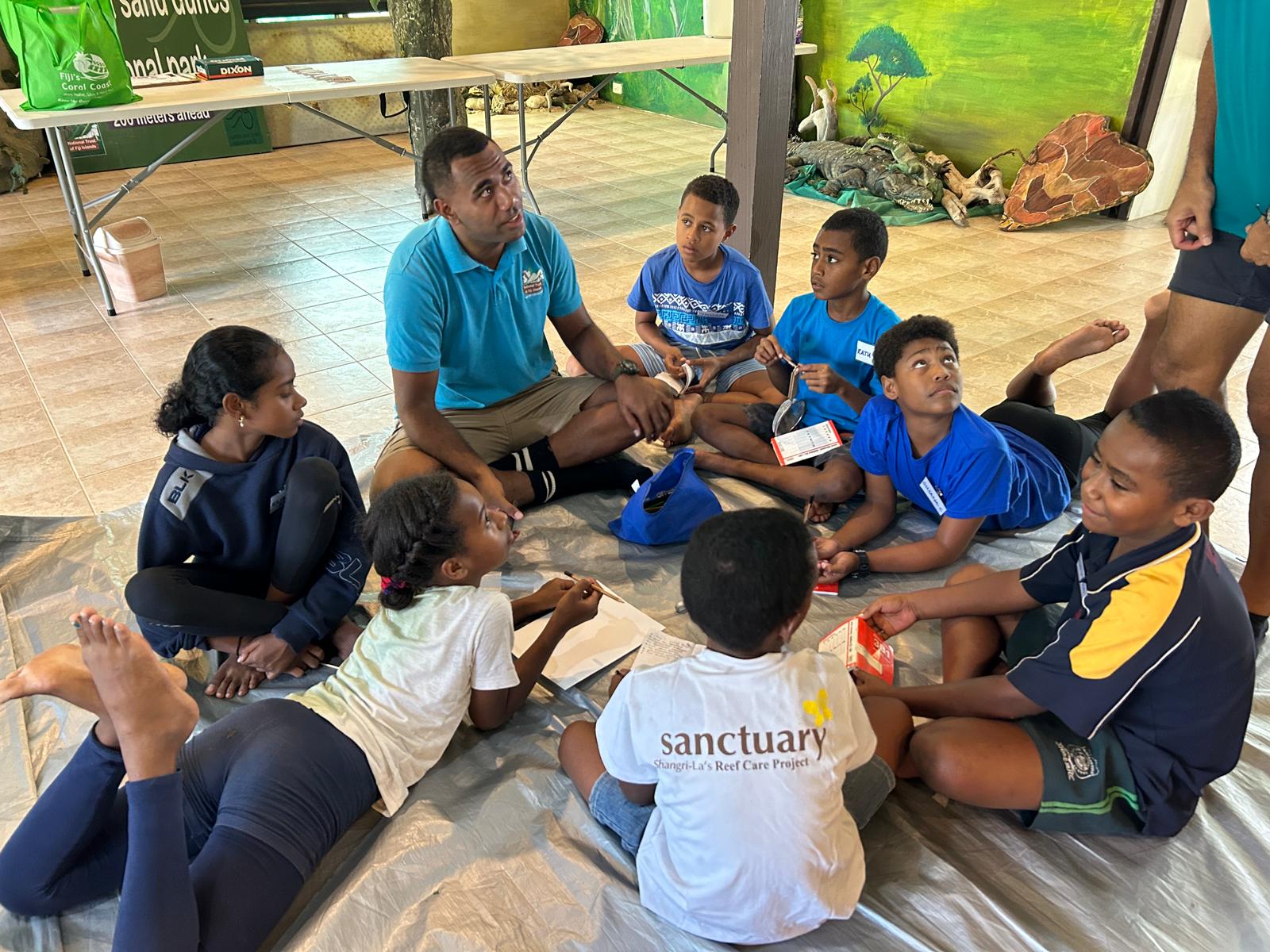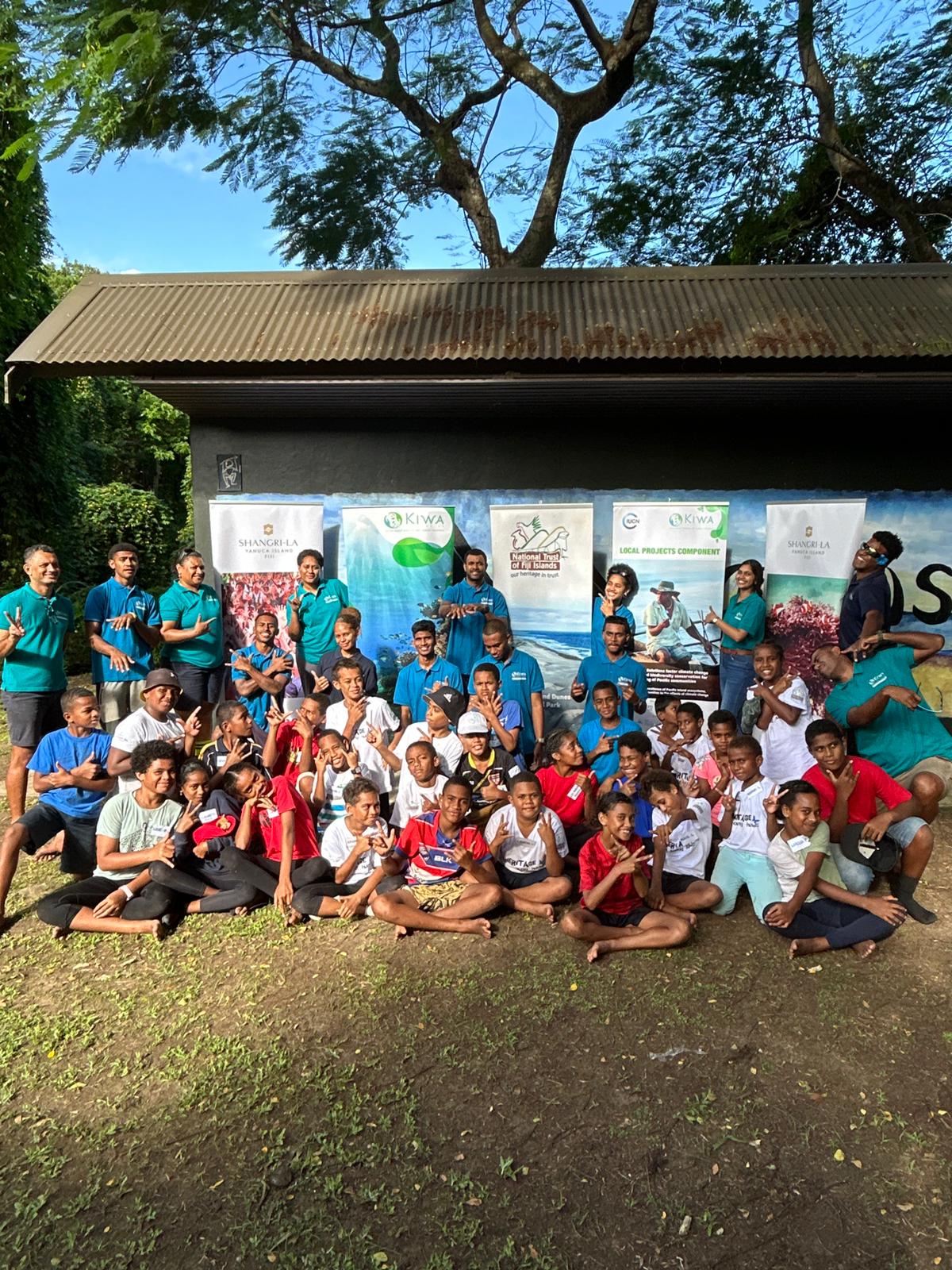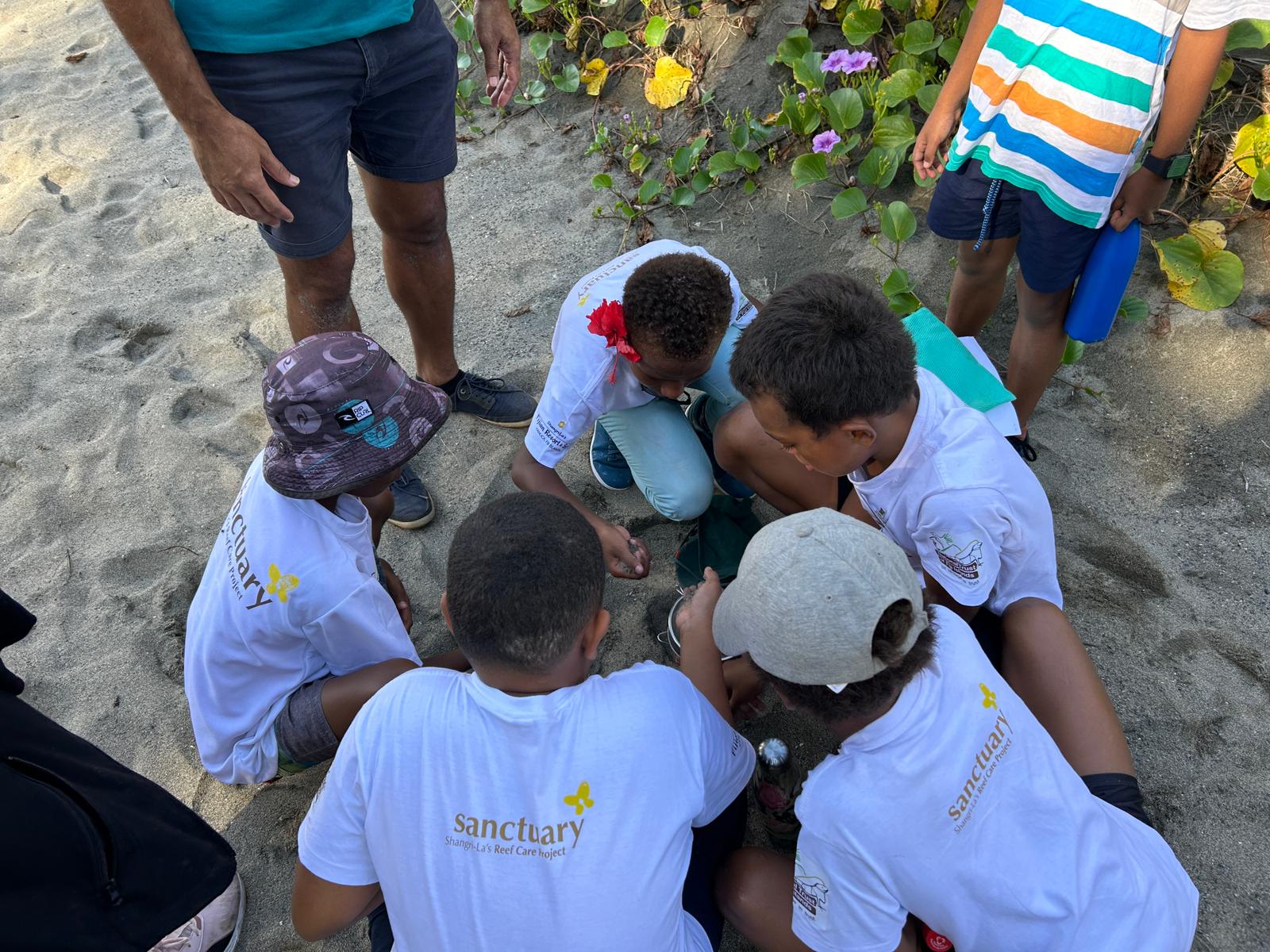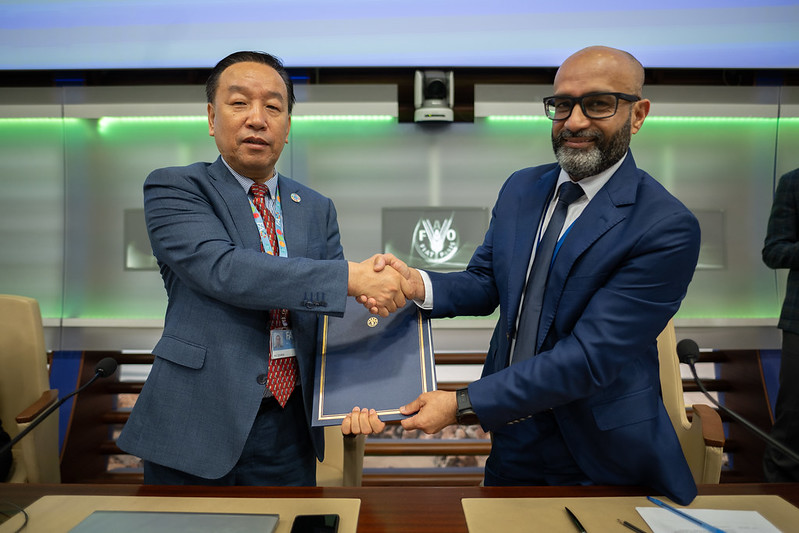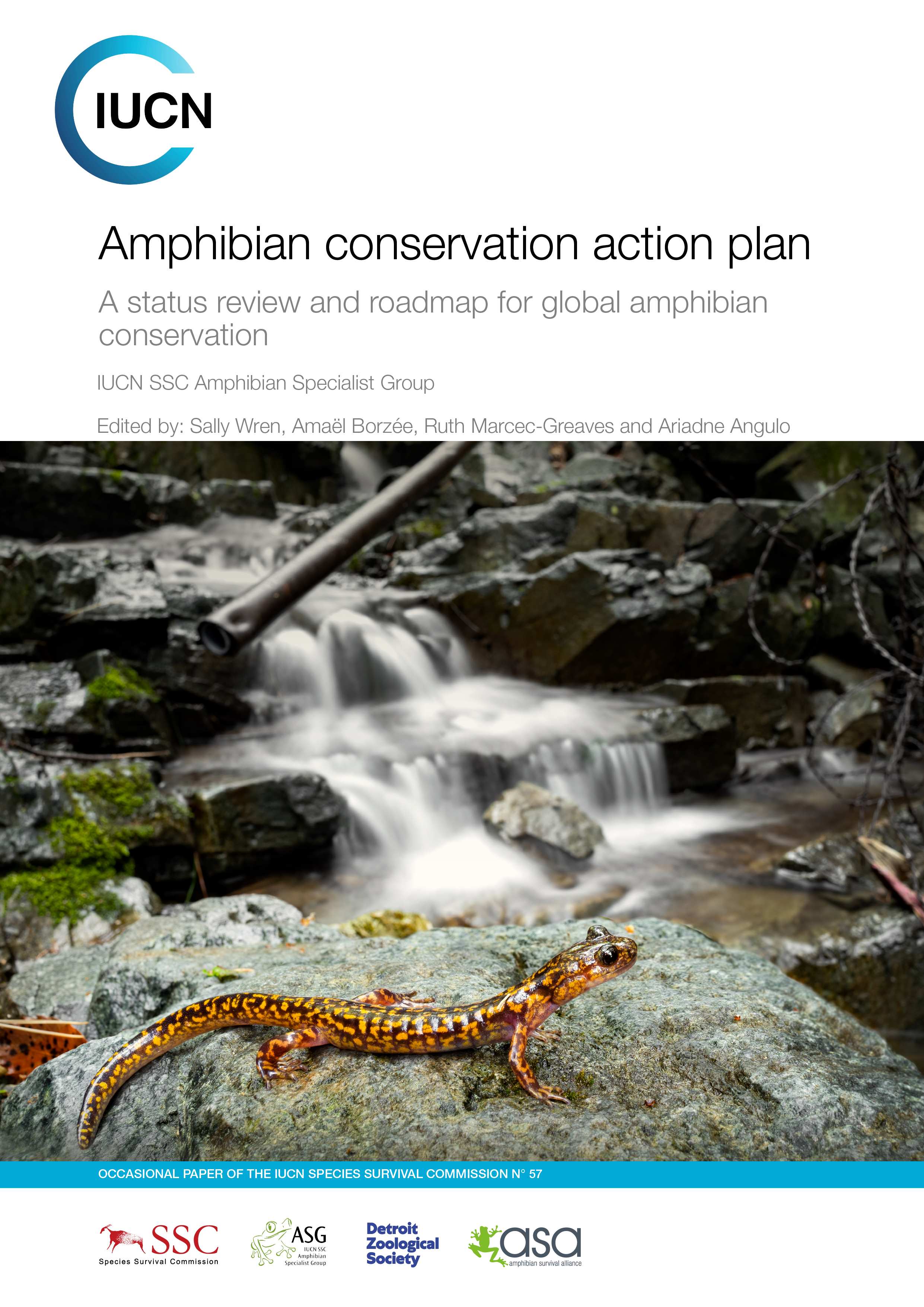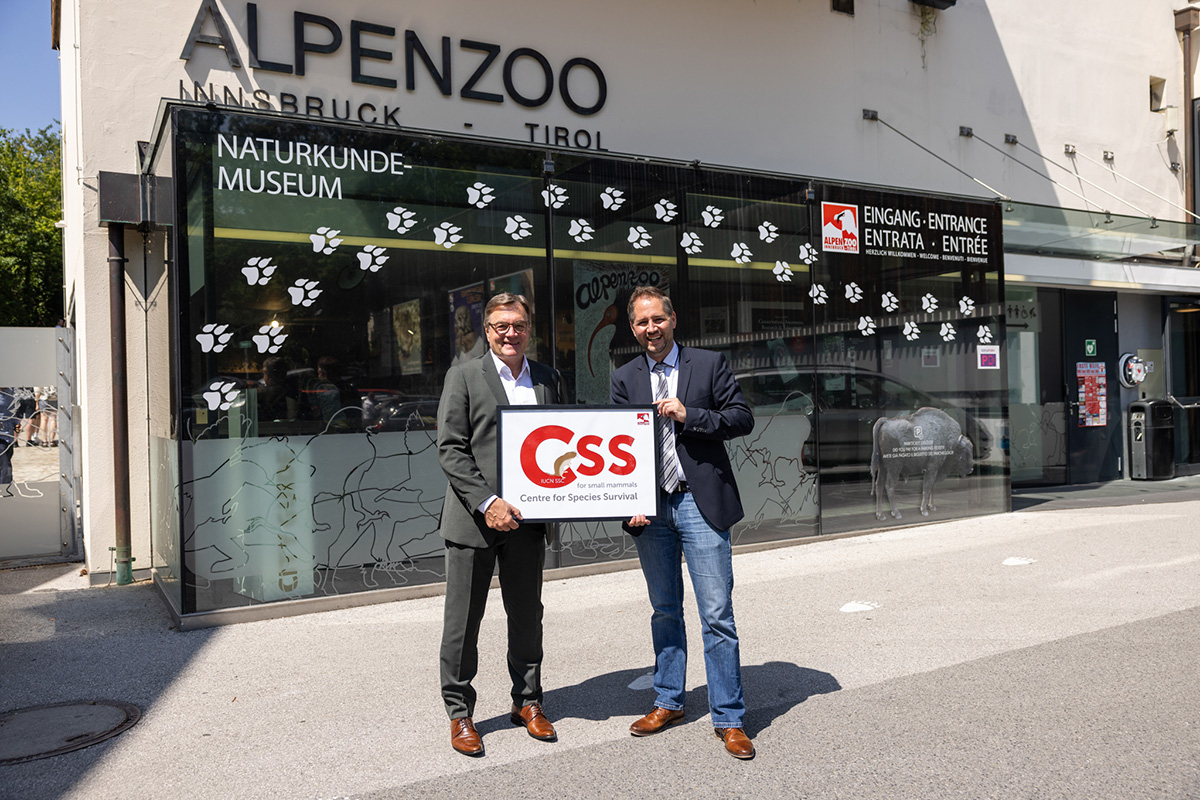The Sigatoka Sand Dunes National Park recently hosted the annual Heritage in Young Hands (HIYH) EcoCamp, an event focused on environmental education.
This year's edition of the impactful programme was made possible through funding from the Kiwa Initiative, under the National Trust of Fiji's (NTF) Kiwa project aimed at "Building Coastal Resilience- forest restoration, invasive management actions and the Heritage in Young Hands Program- of the Sigatoka Sand Dunes ecosystems."
From 7 – 9 May, a total of 27 students from various primary schools in Sigatoka participated in the 3-day EcoCamp, which centred around five key themes: Heritage, Civic Pride, Stewardship, Life Skills, and Volunteerism. The interactive, fun, and nature-based programme took the students through the Sigatoka Sand Dunes, Sigatoka Town and the Volivoli Swamp, allowing them to explore their local environment.
Two new facilitators, Dikoula Turaga and Shreeya Verma from the International Union for Conservation of Nature (IUCN), were part of the Kiwa Initiative programme and contributed to the EcoCamp sessions. On the last day, Ms. Verma led a session on social media strategies, where she encouraged the students to wait until they were much older before being fully active on social media. She also had the students collaborate with park rangers to create posters on environmental themes like firebreaks, beach tepees, tree planting and bats, which could be used on the park's social media platforms.
Other activities during the EcoCamp included a risk assessment exercise, where students identified potential threats during their 1-hour walk in the park, and a sand experiment that helped them understand the diverse composition of the sand dunes. The students also learned about dune morphology, the story of the "tree huggers" conservation movement, and the key role of bats as forest growers.
The HIYH programme was launched in 2016 through a partnership between the National Trust of Fiji and Shangri-La Yanuca Island, Fiji. The programme aims to raise environmental awareness among children as well as increase children's ecological knowledge. The Kiwa Initiative's funding has been crucial in ensuring the continuation and growth of this programme.
The NTF Kiwa Initiative project is a local project under the Kiwa Initiative. The initiative is funded by the European Union (EU), Agence Française de Développement (AFD), Global Affairs Canada (GAC), the Australian Government Department of Foreign Affairs (DFAT), and the New Zealand Ministry of Foreign Affairs and Trade (MFAT).
The Kiwa Initiative has established partnerships with the Pacific Community (SPC), the Secretariat of the Pacific Regional Environment Programme (SPREP), and the Oceania Regional Office of International Union for Conservation of Nature (IUCN).
________________
For more information, visit: www.kiwainitiative.org
